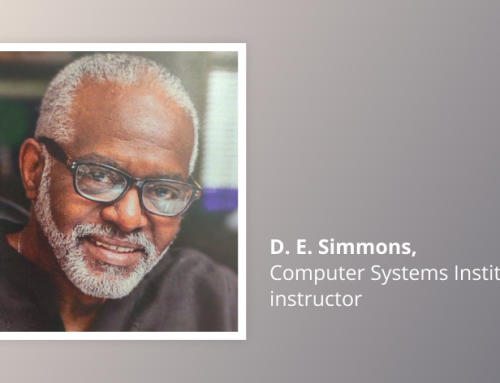By Snezana Stojilkovic; Chicago, Illinois
As I wrote in the previous post, I would introduce you to some ideas that might help you to improve and master your English. Those are just ideas, and you can chose whatever suits your time and level.
The most important rule is: Don’t be afraid to talk!
I remember how it looked like when I came to the USA for the first time. I had a job in Massachusetts in a store, and although I understood my employers I was so shy in front of them. Whenever they told me to do something I nodded and said: “Okay”. All the time. For a month. Literally. I even start joking and telling my friends: Call me “Sneza Okay”. But, after some time I realized that I can’t stay shy forever. My job required me to talk to the customers, to answer their questions, to try to sell them things they don’t need to buy. (It was vacation time.) What harm could do it to me if I talk, even if it wasn’t grammatically correct? People are nice in general, and for that four months I spent in the USA no one mocked me for my imperfect English. On the contrary, they praised my knowledge which helped me to gain some confidence and motivated me to talk more.
That’s why I am telling you this: Talk. Talk a lot. Whenever you have a chance. No matter what the topic is, or how big the audience is. Your goal is to improve your speaking skills, pronunciation and reduce your accent, so go for it! Even if it’s not 100% correct, who cares? Practice leads to perfection! So, practice. Every day. With your friends, with that cute girl that works in a local store, or that guy who will spend 20 minutes explaining you what characteristics that lap top has and why you should buy it.
This is Chicago, people are friendly, and no one would look at you like you are some lunatic if you start conversation with the person sitting next to you in the train or an old lady while waiting in the line in a grocery store. Just smile, be polite and start talking.
If you are enrolled in school – participate in class discussions, I know you have a lot to say. How about you invite your friend for a coffee just to start a debate: Why is Chicago better city that New York, (is it?) or do you think the death penalty is justified, pro and cons. Choose the topic that you are familiar with, and play like you are in some debate club. Come up with arguments, and defend them. Don’t forget to have some fun!
Read.
Read. And then read more. Anything. Read more than you talk. The newspapers, the magazines, the books, the lyrics for your favorite songs, even the commercials on the streets, in the stores and trains, junk letters that waiting in your mail. Xfinity has amazing discount this month, yes, the spring is coming, you need new shoes, yes, you are pre-qualified for this special credit card. It is designed just for you. Yes, read it, you might learn some words that will be useful in the future. You never know when you would get the phone call from the bank telling you that fraudulent activity occurred, but you won’t be held liable for that. In other words, your credit card is stolen, but it’s not your fault. Yea, it happened to me last week.
Before you start your reading session, as I mentioned before, you need a plan. Try to choose articles and books that are one level higher than your current level, so you could be challenged, but not discouraged.
Reading is, in my opinion, essential for learning any language. Not only that you will enrich your vocabulary, you will pay more attention on articles, language structures, different writing styles, etc. I will provide more details on this in some of the following posts.
Use new words often.
While you were reading a book you came across a word that was unfamiliar. After checking in vocabulary or googling it you thought you memorized the meaning, right? But, then, couple of days later you saw or heard that word again somewhere else, it looked or sounded familiar, but you couldn’t really recall the meaning. Why? How did it happen? It’s because you didn’t use the word you tried to remember.
I bet that this happened to you before: you were studying for the exam without rehearsal. At one moment you were so sure you knew everything from the book. Couldn’t wait for your professor to ask you some questions. Well, the day came, you sit comfortably across him/her but the second you hear the question you found yourself in a cold sweat. You heard that term, you had an idea what that is, but you had a hard time giving a comprehensive answer and providing the details. Of course the professor wanted the details. You failed. You failed because you didn’t learn the material, you just familiarized yourself with it.
In order to avoid the same situation with the new words, my advice is: say the word(s) you want to learn loud couple of times, but more important use it/them right away. Come up with five different sentences using the new word(s). If it has multiple meanings even better: use it in different context. Not only that, the next time you are talking to your friend, find a way to tell a story where you could say words you have been practicing. After that, it’s safe to say that these words are in your memory.
I’ll leave you now so you can practice some words, maybe fraudulent or liable (if you didn’t know them). I have more ideas, but I’ll have to save them for the next time.




